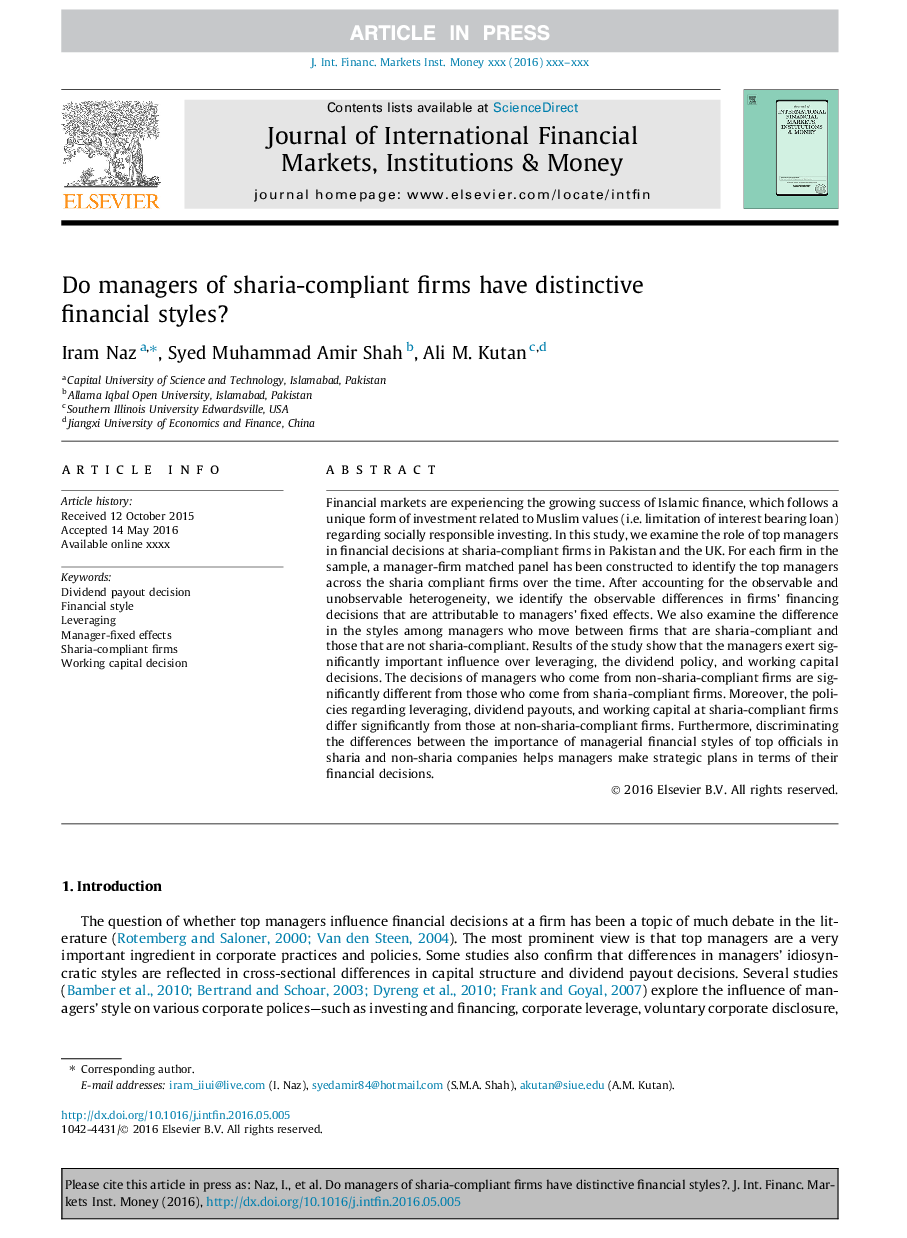| Article ID | Journal | Published Year | Pages | File Type |
|---|---|---|---|---|
| 5101035 | Journal of International Financial Markets, Institutions and Money | 2017 | 14 Pages |
Abstract
Financial markets are experiencing the growing success of Islamic finance, which follows a unique form of investment related to Muslim values (i.e. limitation of interest bearing loan) regarding socially responsible investing. In this study, we examine the role of top managers in financial decisions at sharia-compliant firms in Pakistan and the UK. For each firm in the sample, a manager-firm matched panel has been constructed to identify the top managers across the sharia compliant firms over the time. After accounting for the observable and unobservable heterogeneity, we identify the observable differences in firms' financing decisions that are attributable to managers' fixed effects. We also examine the difference in the styles among managers who move between firms that are sharia-compliant and those that are not sharia-compliant. Results of the study show that the managers exert significantly important influence over leveraging, the dividend policy, and working capital decisions. The decisions of managers who come from non-sharia-compliant firms are significantly different from those who come from sharia-compliant firms. Moreover, the policies regarding leveraging, dividend payouts, and working capital at sharia-compliant firms differ significantly from those at non-sharia-compliant firms. Furthermore, discriminating the differences between the importance of managerial financial styles of top officials in sharia and non-sharia companies helps managers make strategic plans in terms of their financial decisions.
Keywords
Related Topics
Social Sciences and Humanities
Economics, Econometrics and Finance
Economics and Econometrics
Authors
Iram Naz, Syed Muhammad Amir Shah, Ali M. Kutan,
